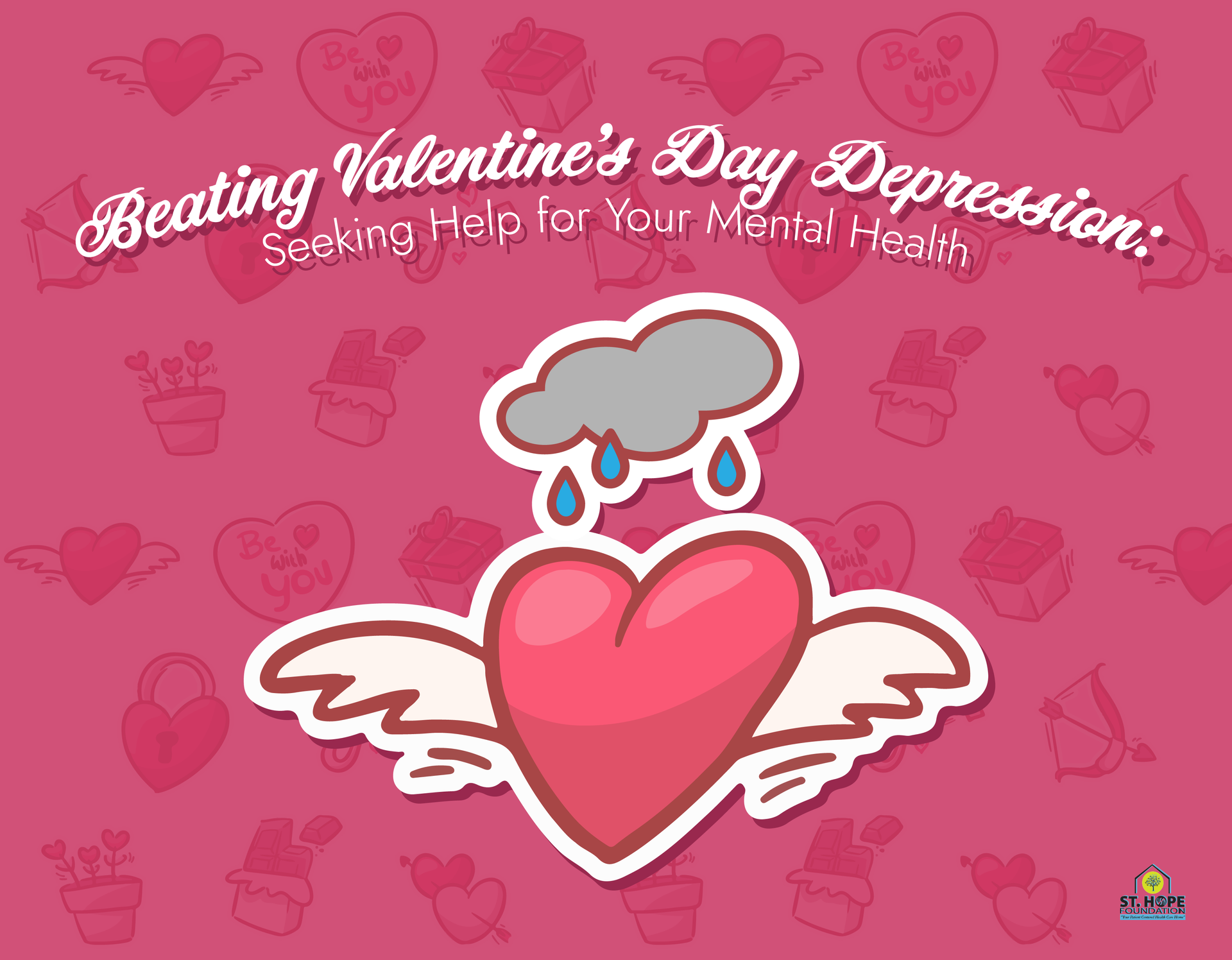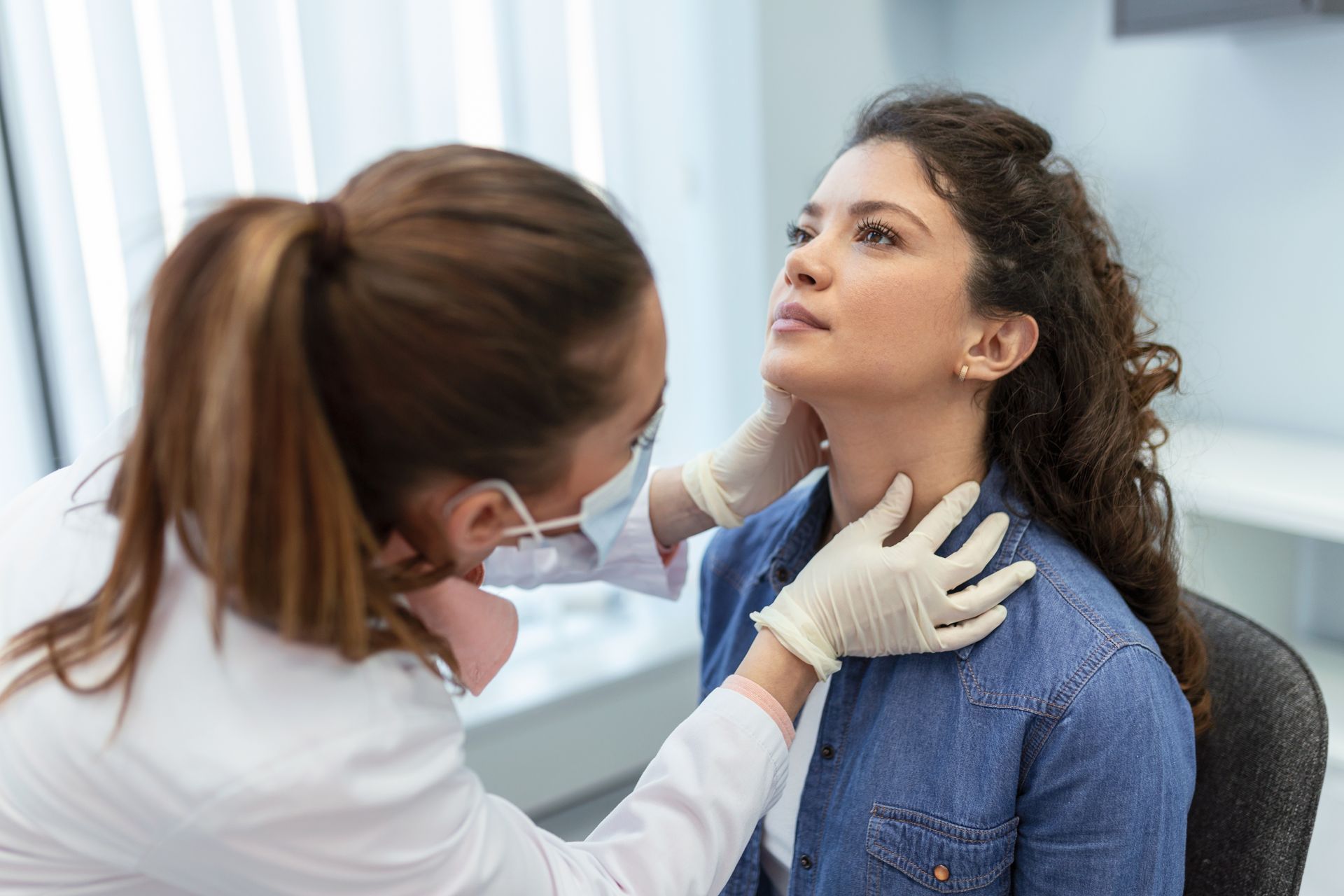Recent Posts
Beating Valentine’s Day Depression: Seeking Help for Your Mental Health

Valentine's Day is one of many holidays that trigger feelings of loneliness and depression in many individuals. The holiday is intended to promote togetherness and love, but often brings to the fore feelings of inadequacy, disappointment or depression over a loss.
These feelings may be especially difficult to deal with on Valentine's Day, but they rarely vanish when the day is over. If you've been struggling with your mental health, there are resources available to help you cope.
Tips to Help You Beat Valentine’s Day Depression
Valentine's Day may only come around once a year, but the feelings that come with it can last a lot longer. Whether you're feeling isolated or are struggling to see the positives of being single this time of year, there are things you can do to help you beat Valentine's Day depression.
Avoid Social Media: Avoid social media on Valentine's Day. You're going to see many couples, and even brands, who will give a shout-out to the holiday. It may unintentionally sting if you're already feeling low. Do a social media detox for the day to avoid getting caught up in how others are celebrating the holiday.
Spend Time With Others: There's a good chance you're not the only one who's feeling left out on Valentine's Day, and there may even be someone in your circle who would appreciate the company. Spend time with others to help you focus less on the negative feelings that come with Valentine's Day and enjoy camaraderie with those around you.
Acknowledge How You Feel: It may be tempting to push down negative feelings and treat Valentine's Day just like it were any other day, but if you're dealing with overwhelming feelings of depression, ignoring them might not be the healthiest way to cope.
The way that you feel is valid, and experiencing your emotions is a healthy way to process why you might feel the way you do. Take some time to acknowledge how you feel this Valentine's Day. You could do it via journaling or any way that helps you release some of the strong feelings.
Treat Yourself: Don't be afraid to spend the holiday prioritizing yourself. It may be difficult to see past some of the sadness that comes with solitude, but if you can look past it, you may find you can have quite a good time in your own company.
It’s OK To Seek Support
Seeking support can be an intimidating task, but if your Valentine's Day Blues have been in your life for a while, it may be in your best interest to get help.
The root of your feelings may or may not be related to the holiday, but it's important that you understand why you're feeling what you're feeling. It is completely understandable to experience Valentine's Day depression, but those feelings don't have to permeate the rest of your life.
Signs you may need extra support:
- Experiencing feelings of sadness that last for long periods seemingly without reason
- Noticeable mood changes spanning very high and very low emotional states
- Unshakable feelings of apathy
- Suicidal ideation
- Withdrawal from family and friends
- Experiencing extreme feelings of guilt
- Confusion or difficulty concentrating during periods of emotional intensity
Overcoming Mental Health Stigma
Mental health awareness has a lot of stigmas attached to it thanks to media, engrained cultural biases and the difficulty surrounding openly communicating about this topic. That stigma may be influencing how you feel about seeking help.
Stigma can create a lot of self-doubt and shame, and part of mental health awareness is attempting to get past those unproductive and outdated ways of thinking so you can improve your life and be happier.
The reality of mental health is that it should be treated delicately. If you’re experiencing feelings of depression, you deserve the support that would allow you regain your peace of mind and contentedness.
If not taken seriously, mental health can quickly become a crisis. Don't let the stigma surrounding mental health care or the assumption that depression will go away after Valentine's Day stop you from seeking the support and resources you need.
Support For Those Experiencing Valentine’s Day Depression
If you're experiencing feelings of depression and isolation on Valentine's Day or any other day, know that you're not alone. At St. Hope Foundation, we offer behavioral health services where our licensed psychiatrists will help you cope with the demands of everyday life while living with depression and other mental illnesses.
We're trained to find solutions to help you navigate the ripple effect that mental illness can have on your life. We're here for you. Call us at (713) 778-1300 to schedule an appointment or call or text 988 for our suicide crisis lifeline.









